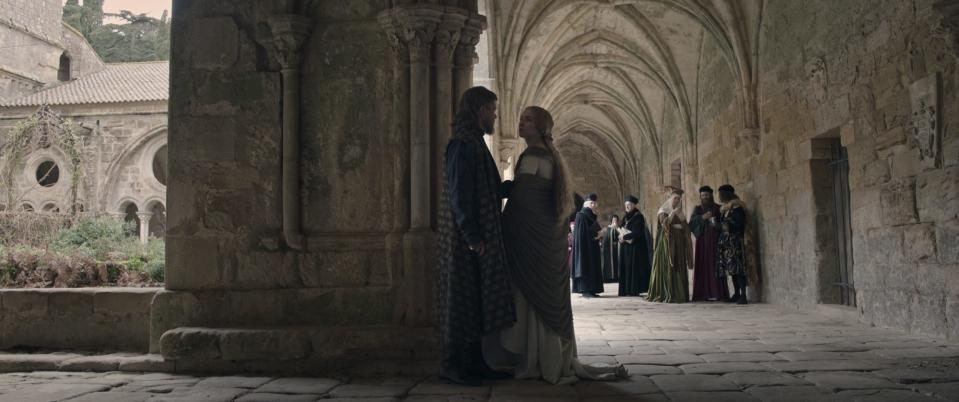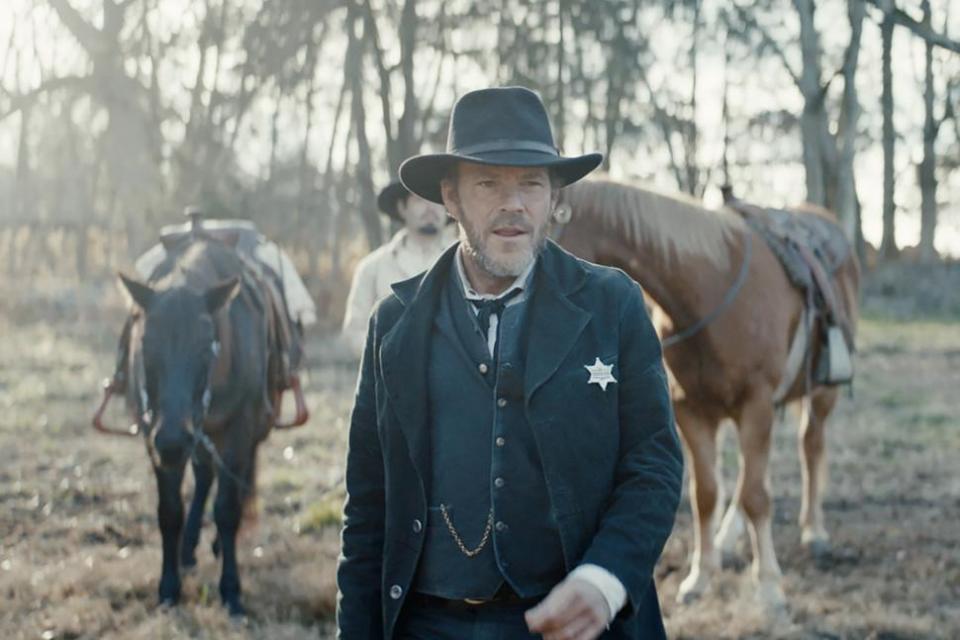Netflix’s ‘The Power of the Dog’ and Disney’s ‘The Last Duel’ Rocket to Top of Home Viewing Charts

- Oops!Something went wrong.Please try again later.
- Oops!Something went wrong.Please try again later.
Instant hits: Jane Campion’s “The Power of the Dog” and Ridley Scott’s “The Last Duel,” both midweek additions for home viewing, have already hit number one on their first day in release, care of the two charts that most quickly gauge audience response. Though the films — one a Netflix heavy-hitter hot off a limited theatrical run, the other a Disney holdover that fared poorly in its theatrical-only release — are totally separate cases, each is significant. And they also share a surprising element that partly suggests why they had instant success.
Netflix has produced a steady supply of awards-pursuing titles for several years now. But only a handful — Martin Scorsese’s “The Irishman” is the rare case — have ever reached the #1 spot on the streamer’s own daily movie chart. Most of them have minimal appearances. Last year, David Fincher’s “Mank,” despite its later multiple Oscar nominations, showed up on the chart for one day only, and only then at #10.
More from IndieWire
Campion’s film is considered a leading contender — including for Best Picture — at this year’s Oscars, but that didn’t guarantee it this level of immediate response. (It has played a handful of theaters over the past two weeks, no grosses have been reported, as per Netflix tradition.)
Even less likely was Scott’s film. “The Last Duel” (Disney) has already been established as the biggest movie flop of 2021 (it grossed just $11 million when it was released early this year, against a production cost reported to be $100 million). But it debuted at #1 on iTune’s VOD rental chart on its first day out. It dislodged “Venom: Let There Be Carnage” (Sony), out for only a week and expected to have a lengthy run at #1, based on its box office take that launched 20 times more than “Duel.”
Though we have no access to revenue returns, that in just its first two days available for home viewing, “Duel” pulled in such a large audience suggests an untapped level of interest. That, in turn, suggests that the strategies for film releases and how to include home platforms going forward remain unsettled in a Wild West stage of uncertainty.

“Duel” is on Premium VOD rather than streaming because it is a holdover film from 20th Century Fox. As such, existing deals with HBO (which expire sometime in 2022) mean that the cable giant still has claim to any initial home showings other than VOD. This has already come into play with the animated “Ron’s Gone Wrong”: Also a Fox production, Disney was so eager to place it on its streamer for the holidays that they also offered it to rival HBO Max at the same time, thus complying with the contract.
In the case of Scott’s film, Disney waited 45 days after the October 15 “Duel” release, long after the film had left theaters. It was dead on social media other than mentions that Scott’s other 2021 film, “House of Gucci,” grossed more in three days than “Duel” did during its entire run. And yet it immediately clicked at iTunes (whose charts are quickest to respond).
Here’s a comparison of note: “Spencer” (Neon), also in the middle of awards discussion and with an instantly appealing subject (Princess Diana), has grossed more in its four weeks in theaters than “Duel.” But that film went to PVOD after only three weekends at the box office, and has not risen above #4 at iTunes (its highest position on any chart). That would have logically suggested that the seemingly weaker and less current “Duel” would chart no higher.
Why would “Power” soar and “Duel” do better that anticipated, at least initially? Their success could be tied into its cast of major names — Campion’s film has Benedict Cumberbatch and Kirsten Dunst, “Duel” features Matt Damon, Ben Affleck, Adam Driver, as well as Jodie Comer (“Free Guy”). Stars remain a draw for home impulse viewers. And Campion by herself guarantees interest even before the great reviews.
But the two films also share a key element that appeals to home viewers: their period settings suggest elevated levels of conflict and raw action that often draw heightened interest in home viewing. (“The Power of the Dog” is rated R by the MPAA for “cattle castration, language and violence.”) “Power,” like the POV sleeper “Old Henry” (now ending its second month of top ten success), is a Western set in a frontier world. It helps that it has a world-class director in Campion, significant social media and critical buzz, and awards attention. But so have many other Netflix releases that earned minimal chart placement.

“Old Henry”The medieval setting for “Duel” might have been an issue for drawing the more youthful crowd that dominates movie ticket buying. On PVOD, its violence and action (the plot revolves around a life-or-death struggle that will determine the fate of a rape victim and her attacker) may have elevated interest. And though it did poorly in theaters, these elements did gain considerable attention.
It also suggests that despite its weak box office performance, enough people saw the film and liked it to generate delayed interest. “Duel” received generally positive reviews, and also had passionate support, particularly on social media.
Though Disney’s hands were tied on alternative release patterns, this initial success is another data point that they, and other studios, will have to consider going forward. That the film got a second life — and a profitable one, as Disney will receive 80 percent of the revenue after carrier costs are deducted — could be used as an argument for initial exclusive theatrical release. Its theatrical gross exceeded that of three recent Warner Bros. films (“Cry Macho,” “The Many Saints of Newark,” “Those Who Wish Me Dead”), all of which have made barely a dent on PVOD after also initially playing on HBO Max.
In both cases, real success, if not access to actual revenues, will be seen if the films sustain a high position over a period of weeks. For now, it appears that home viewers continue to make their choices differently than the smaller pool of ticket buyers, and that’s not changing.
Best of IndieWire
New Movies: Release Calendar for December 3, Plus Where to Watch the Latest Films
'French Dispatch' and 'Last Night in Soho' Start to Lift Stagnant Specialty Box Office
Sign up for Indiewire's Newsletter. For the latest news, follow us on Facebook, Twitter, and Instagram.

